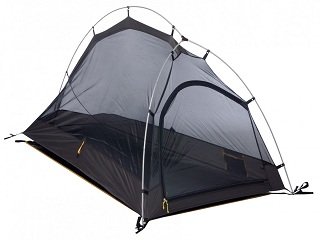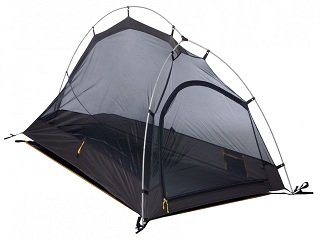 Tents are an important piece of equipment in the outdoors, plain and simple. They protect us from the elements and provide a secure place to sleep after a long day on the trail. However, not all tents are made the same, and come in a variety of shapes and sizes for different needs. That being said, if backpacking to the backcountry is on your to-do list, you’ll need to invest in an ultra-light backpacking tent for the journey, as tents designed for such an activity offer a range of benefits.
Tents are an important piece of equipment in the outdoors, plain and simple. They protect us from the elements and provide a secure place to sleep after a long day on the trail. However, not all tents are made the same, and come in a variety of shapes and sizes for different needs. That being said, if backpacking to the backcountry is on your to-do list, you’ll need to invest in an ultra-light backpacking tent for the journey, as tents designed for such an activity offer a range of benefits.
Backpacking tents are a little different from their conventional camping counterparts. Firstly, they’re specifically designed to be carried long distances in a backpack, which means one-person models usually weight around three pounds or less and two-person models weight somewhere between three and five pounds. Furthermore, if you’ve never seen a backpacking tent, you’ll discover that in order to reduce weight, many models offer little wiggle room inside. They’re not made for spreading out or air mattresses, but rather to provide a place to sleep in between hiking. If you have a lot of gear or plan on taking a child or even a pet, I’d suggest opting for one size larger than necessary, to reduce discomfort. Basically, the important thing to remember when it comes to weight is that less weight usually means less room inside, so you’ll have to find the right balance between the two.
As far as price goes, most backpacking tents aren’t cheap. You can expect to pay anywhere between $200 and $500 for a tent that you’d feel comfortable putting between you and the elements. The better quality the tent—materials, weight, size, etc—the more expensive it will be. However, I will once again implement one of my tried and true factors when shopping: how often do you plan to use it? If you don’t go backpacking that often, there’s no need to spend a lot of money on a tent you won’t use very often.
There are numerous companies that offer great tents for your backpacking needs. Big Agnes, REI, Marmot, NEMO, and MSR, to name a few, make a variety of backpacking tents, and have received great reviews from satisfied customers.
A good rule to live by, especially when shopping for any major piece of outdoor equipment, is to inspect it in person at the store before making a purchase. Get inside the tent and see for yourself how it suits you personally. Sales associates usually want you to walk out with the product that’s right for you and will be more than willing to assist you in accomplishing this any way they can. Like I said before, you won’t have a lot of room inside, but backpacking tents are for just that: backpacking, which means you’ll really only use them for sleep.








